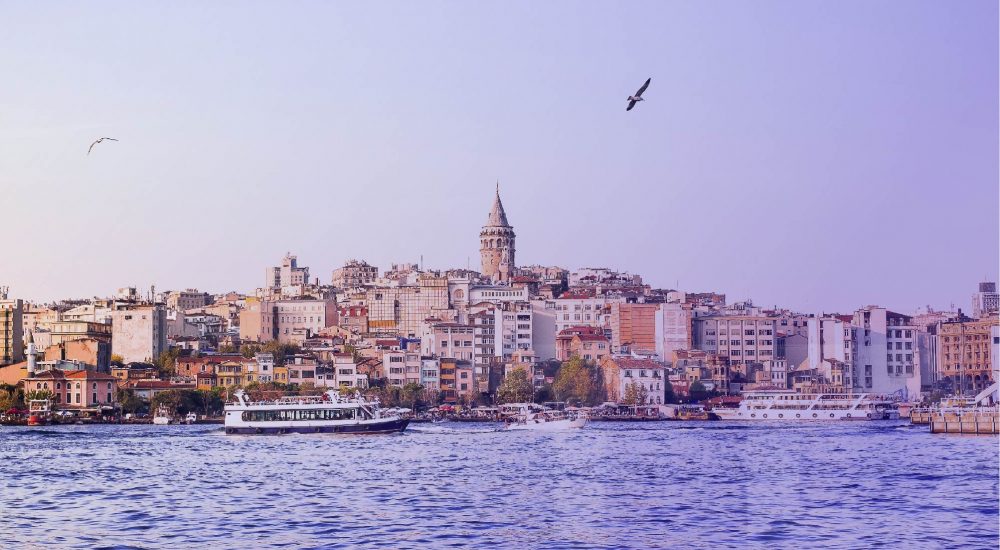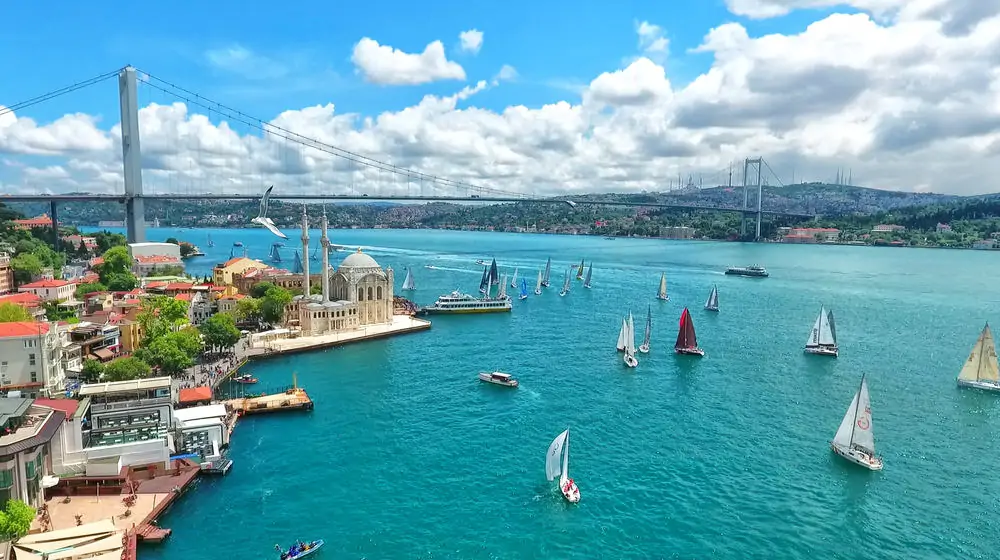Turkey is one of the most promising real estate markets in Europe, and the mantra “location, location, location” rings especially true for this country. Strategically situated at the crossroads of Europe, the Middle East, and Central Asia, and home to almost 81 million people, Turkey offers great opportunities for real estate developers and investors by combining a large construction sector with growing commercial and industrial output.
Some key facts and figures in the Turkish real estate sector include:
- The real estate sector accounted for approximately 8.4 percent of GDP in the last decade. On the investment side, FDI inflows stood at USD 10.8 billion, with real estate and construction garnering USD 4.6 billion (42.9 percent) of total FDI in 2017.
- Urban renewal and mega projects dominate the agenda for the foreseeable future, particularly in Istanbul. Some projects in the city include Marmaray, Canal Istanbul, Yavuz Sultan Selim Bridge, Eurasia Tunnel, 3-Storey Grand Istanbul Tunnel, and Istanbul’s 3rd airport.
- The Urban Renewal and Development initiative will encompass 7.5 million housing units. The initiative has a budget of USD 400 billion, with a large contribution coming from the private sector.
- According to the Knight Frank Global House Price Index, Turkey ranked 6th in the 56-location index in Q3 of 2017 in terms of the annual price growth index. Turkey saw a year-on-year increase of 11.1 percent, and thus emerged as one of the top-performing housing markets in the world, ahead of Australia, Latvia, and India.
- The total number of houses sold in the Turkish property market reached 1.4 million units in 2017; likewise, sales of real estate to foreigners began to increase following the abolishment of the reciprocity law in 2012. In 2017, 22,234 houses were sold to foreigners in Turkey, marking a year-on-year increase of 22.2 percent. Regarding house sales to foreigners, Istanbul was the top-performing province with 8,182 sales in 2017, followed by Antalya with 4,707 sales, Bursa with 1,474 sales, and Yalova with 1,079 sales.
- As of 2017 year-end, the existing Grade A office stock in Istanbul surpassed 5.3 million square meters across 249 office buildings. Annual gross leasable area growth in the office market was around 12 percent on average between 2010 and 2017. There is more than 1.2 million square meters of office supply under construction, and it is expected that the total grade A office supply will reach almost 7.1 million square meters gross leasable area by the end of 2020.
- 401 shopping centers are operational in Turkey with a total gross leasable area of 12.2 million square meters. 114 shopping centers in Istanbul with a total gross leasable area of 4.2 million square meters represent 34 percent of the total leasable shopping center area in Turkey.
- According to JLL’s Cross Border Retailer Attractiveness Index 2016, Istanbul is the 6th most attractive market in Europe after London, Paris, Moscow, Milan, and Madrid.
- In spite of the growth in recent years, Turkey is still below the average of total leasable area per person compared to the European average. This indicates potential for further retail growth in Turkey.
- According to the Ministry of Culture and Tourism Directorate, Turkey has 3,641 graded hotels with a total of 426,981 rooms as of 2016 year-end. 5-star hotels account for 42.7 percent of hotel stock, while 4-star hotels secure a 24.8 percent share, and the 3-star segment makes up 12.6 percent of the market share.
Source: invest.gov.tr


